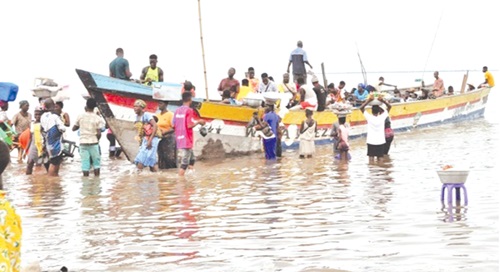President John Dramani Mahama's upcoming 24-Hour Economy Policy, set to be launched in July 2025, represents an ambitious blueprint to transform Ghana’s economic landscape.
At the core of this forward-thinking vision is the development of the Volta Lake Economic Corridor, which is envisioned as a national production zone and logistics hub. While this initiative holds significant promise for revitalising the economy, it also raises a host of critical concerns regarding environmental sustainability, infrastructural readiness, and the impact on local communities.
Food production
The proposal to harness over two million hectares of arable land along the Volta Lake for agriculture and industrial activities could potentially elevate Ghana's food production and processing capabilities.
By tapping into this vast agricultural potential, the government aims not only to enhance food security for domestic consumption but also for export to bolster the nation’s economy.
Furthermore, revitalising the fisheries sector and establishing industrial parks is expected to create numerous employment opportunities, thereby stimulating regional economies and alleviating poverty.
The plan to transform the lake into a transport highway also aims to address road congestion and enhance the efficiency of moving goods and people across the region.
By utilising the natural waterway, logistical operations could become more streamlined, promoting trade and connectivity within Ghana and beyond.
Environmental challenges
Despite the potential benefits, the Volta Basin is no stranger to environmental challenges, which cannot be overlooked in the planning and execution of this grand vision.
The region has a long history of flooding, exacerbated by dam spillage and the impact of climate change.
The incidents surrounding the 2023 Akosombo Dam spillage, which displaced over 35,000 individuals, serve as a stark reminder of the vulnerability of communities living in the area.
It raises the question of whether the proposed developments, while ambitious, could further strain the delicate ecosystem surrounding the lake.
Past experiences with agricultural expansions around the area suggest that without careful management, soil degradation and water pollution may become disturbing by-products of such undertakings.
Infrastructure
The successful realisation of the Volta Lake Economic Corridor heavily relies on the establishment of robust infrastructure and effective flood management systems.
While there are plans for the government to invest in new floating assets and lake ports, uncertainty remains regarding the comprehensiveness of the flood mitigation strategies.
The lessons learned from past incidents indicate that inadequate planning and poor maintenance of drainage systems can lead to catastrophic floods, impacting both urban and rural communities.
To safeguard the success of this initiative, a proactive approach to infrastructure development and ongoing maintenance will be essential.
As the transformation of the Volta Lake region into an economic hub unfolds, it is essential to consider the impact on local communities.
The voices and needs of these communities must be actively integrated into the planning and implementation processes.
Previous projects have shown that neglecting community engagement can lead to resistance, social unrest, and ultimately derailment of the intended outcomes.
Genuinely involving local populations will help build trust and ensure that the economic corridor brings tangible benefits to those most affected.
Stakeholders must recognise that the overall well-being of the region’s inhabitants should be a priority when making decisions that could forever alter their way of life.
Transparency
The establishment of a 24-Hour Economy Secretariat, reporting directly to the President and backed by legislation, is a notable step towards institutional stability.
However, experience shows that initiatives under the direct oversight of the Presidency have often lacked effectiveness and been marred by corruption.
For greater transparency and accountability, it would be more appropriate for the Secretariat to report to Parliament.
Its success will also depend on strong coordination across sectors and efficient policy implementation.
Collaborative stakeholder engagement will be essential to optimise resources and ensure the corridor’s economic benefits are equitably shared.
Additionally, the balance between economic development and environmental preservation must be a guiding principle throughout the implementation of the Volta Lake Economic Corridor.
Sustainable practices should be integrated into all stages of the project to mitigate potential adverse effects on the environment.
This includes adhering to regulations that protect the local biodiversity, employing eco-friendly agricultural methods, and ensuring responsible management of fishery resources.
By prioritising sustainability, Ghana cannot only strive for economic growth but also promote responsible stewardship of its natural resources.
Bold initiative
In conclusion, the Volta Lake Economic Corridor represents a bold move towards economic diversification and industrialisation for Ghana.
The potential advantages are substantial, particularly in terms of job creation, enhancing food security, and foreign exchange from exports.
However, the initiative demands a cautious and well-rounded approach that takes into account environmental, infrastructural and social considerations.
By emphasising transparent planning, community involvement, and sustainable practices, it is possible to realise the vision of a thriving 24-hour economy without compromising the well-being of the Volta Lake region and its inhabitants.
Through careful navigation of the challenges ahead, Ghana can set a precedent for harmonising economic growth with environmental and social responsibility, making strides towards a prosperous future for all.
The writer is a Political Scientist.

